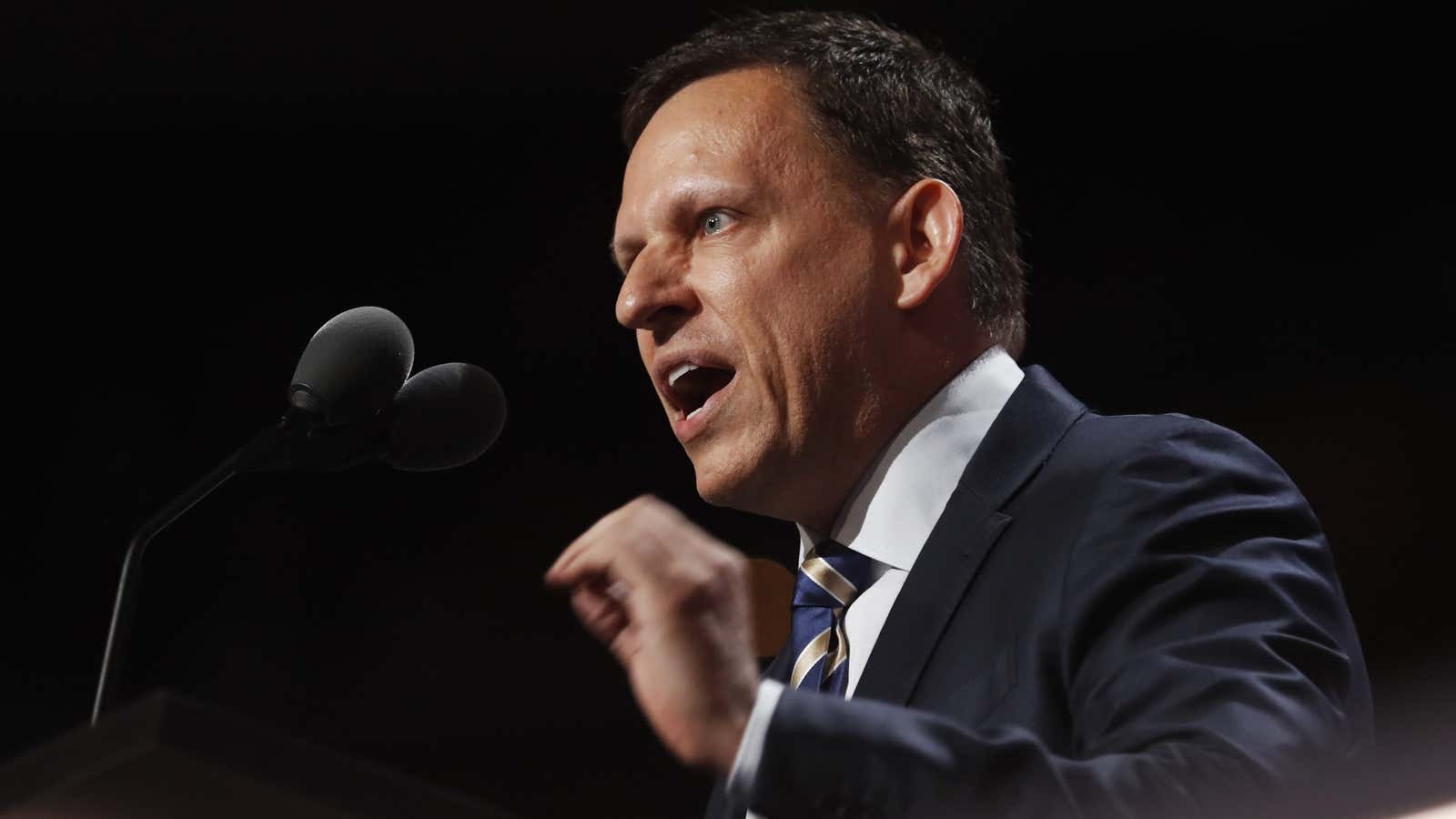By now, the value of having a diverse board is well-established.
When women and members of minority groups are on boards, they bring different perspectives and add insights that might be overlooked by a homogenous group. There’s evidence that women and minorities on boards correlates with improved corporate performance, although a causal link hasn’t been established.
But what about political diversity? Is there a value to having board members whose ideological views differ from the rest of the board, or the stated ethos of the company?
That idea is being tested at Facebook, where Peter Thiel, a billionaire entrepreneur and investor, is under fire for pledging to give Donald Trump’s campaign $1.25 million.
Thiel, one of Facebook’s first outside investors, isn’t new to controversy. Earlier this year he revealed that he bankrolled Hulk Hogan’s lawsuit against media outlet Gawker, in retribution for the news site having outed Thiel as gay in 2007. This summer he spoke at the Republican National Convention in Cleveland.
Across Silicon Valley, founders and executives are calling on companies to distance themselves from Thiel and his support, while tech sector activist Catherine Bracy says Thiel’s presence on Facebook’s board shows that company doesn’t value diversity.
While Silicon Valley runs liberal and has been hostile to conservatives in the past, it is Trump’s behavior that is forcing the issue—it’s hard to imagine a donation to Mitt Romney sparking the same reaction. Facebook CEO Mark Zuckerberg stuck with Thiel after the Hogan revelation, but will again be under pressure to rethink his position, particularly if Thiel’s continued presence threatens the company’s ability to attract employees.
While dropping Thiel may satisfy vocal critics, it may have long term costs.
Facebook is a media company increasingly powerful in its reach and influence, and it needs to represents a wide range of viewpoints. It’s been criticized for shading its trending news offerings to the left and in May Zuckerberg met with conservative leaders to assure them he took their concerns seriously. Ousting Thiel over a political donation could damage Facebook’s credibility with millions of users, and create enemies for the company on the political right, a potential concern as Facebook becomes a lobbying force in Washington.
There are other reasons for Zuckerberg to keep Thiel around. If including women and minorities on a board means adding new and different viewpoints that can challenge the board’s majority culture, the same should hold true for including a gay, Trump-supporting libertarian. Thiel’s views may be out of step with the Silicon Valley mainstream, but that’s exactly why Facebook needs him.
